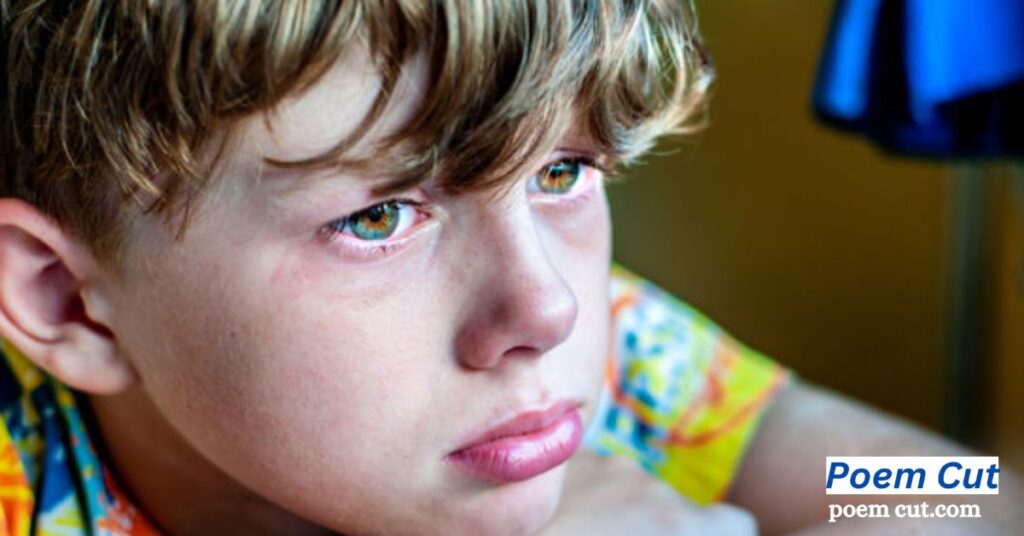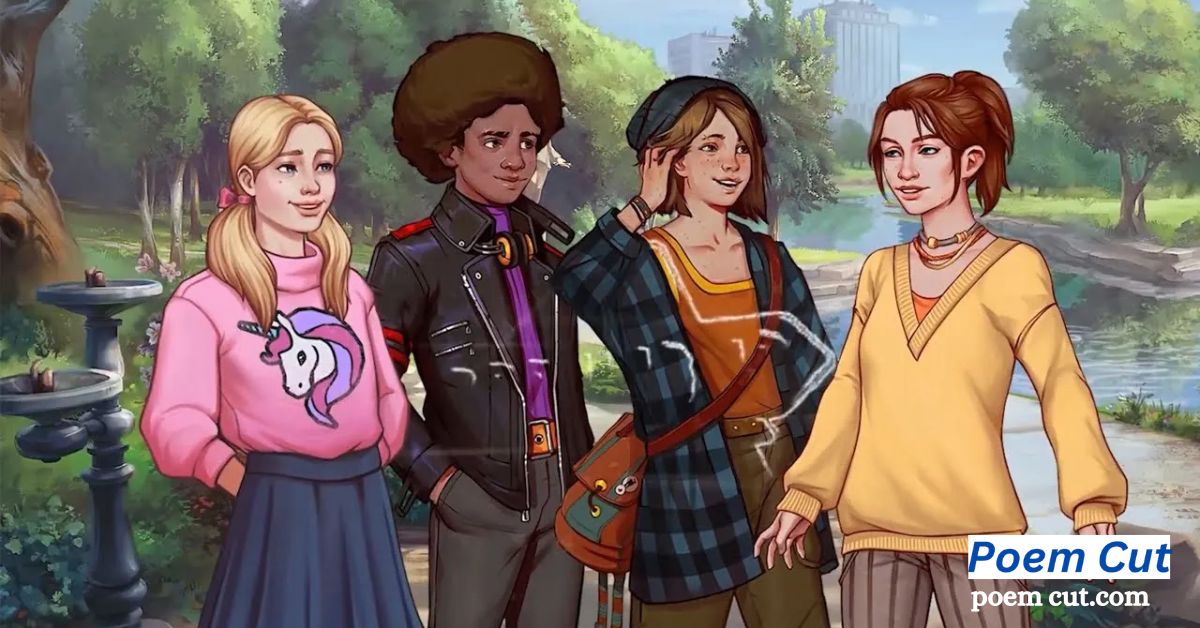Maturity is perhaps the most accompanied by bittersweetness of the experiences one encounters in the course of life. The whole process evolves from being innocent at the very early stages of life, to being very complex at adulthood-most experience a multitude of emotions during this transition in life such as joy, pain, wonder, confusion, and growth, amongst others. Poems About Growing Up
It captures poetry in the most eloquent and emotionally rich manner of universal process in this world and puts a tag to comprehension of feelings most of us feel but are unable to express. For instance, if someone feels nostalgic for that period in life when all activities are new and coming of age, or if someone wants to know how others handle the feeling of growing up, this is a chosen collection of poetry that gives something strong, individual, and poignant. Poems About Growing Up
Why We Love Poems About Growing Up

Timeless are the poems on growing up, which remain really close to some very human emotions. There is the recurrent nostalgia, loss of innocence, discovery of self, growth, which is more or less everyone’s experience. Most commonly, the poems take the reader back to the childhood realm or through the passage to adolescence-the individual can find a catharsis and also clarity. Poems About Growing Up
But growing up is not all about nostalgia. Growing up poems also portray the present and future-how much we change, the hurdles we overcome, and where we find ourselves through it all. This journey, in fact, is both personal and universal. Poems About Growing Up
Themes Common in Growing Up Poetry
When reading poetry about growing up, you’re likely to encounter:
- The loss of innocence
- Childhood wonder and imagination
- The pressure to conform
- Identity and self-reflection
- Parental relationships
- Loneliness, confusion, or rebellion
- Moments of realization or transformation
1. On Turning Ten by Billy Collins
Perfect depression from childhood to adolescence, this melancholy poem is the great reflection of Billy Collins about what it feels to turn ten, as it seems like the soft end of something magical.
“Now I’m thinking that it has all begun, sadness,
as I walk about this universe in my sneakers.”
The bright metaphors like “measles of the spirit” and “chicken pox of the soul” experience Collins describe how growing up is like becoming sick-it means you’re losing access to the carefree, imaginative world of childhood.
2. Hanging Fire by Audre Lorde
The poet presented the innermost thoughts of a girl aged fourteen while voicing issues on insecurity, death, puberty, and emotional neglect. “What if I die before morning, and momma’s in the bedroom with the door closed?”
The voice expresses a rawness and vulnerability. The speaker just finishes with thoughts on her mundane teenage worries—ashy knees, learning to dance—that just jump to deeply existential horrors—like dying before graduation. Such contrasts describe vividly the emotional turmoil of adolescence. Poems About Growing Up
3. When I Was in the First Grade by Sarah Ferrero
Indeed, this is a very funny poem and one that gropes almost wondrously with the touch of childhood by shock over losing a dream. The dread of realizing that it cannot be permanent climbing through cloud one has been enough for the boy from the face of the earth. Poems About Growing Up
“And that was the first time I lost my will to live.”
Admittedly, it is an exaggeration, and yet this is how things seem to children when someone feels intently. It also lampoons the claim of adults about sometimes not being able to actually understand an emotional world of children, giving a cold clinical response rather than showing much empathy.
4. If by Rudyard Kipling
Kipling’s famous poem- “If”- is not exactly a childhood poem, but rather a guide to growing up dignifiedly, with resilience and humility. It is by a father to his son, telling him how to become a very good and honorable man.
“If you can fill the unforgiving minute
with sixty seconds run,
Yours is the Earth and everything that’s in it,
And-which is more-you’ll be a Man, my son!”
Each stanza sets forth an ideal person and the full range of expected qualities by which he should live-having patience, overcoming fear, acting honestly, and lasting through suffering- covering all that it means to well grow up.
More Poems That Capture the Spirit of Growing Up
Feel like discovering even more? Here are a few other beautiful entries about young-adulthood for you to choose from!
| Poem | Author | Theme |
| The Summer I Was Sixteen | Geraldine Connolly | Teenage nostalgia, freedom |
| This Be The Verse | Philip Larkin | Family, inherited trauma |
| Childhood | Rainer Maria Rilke | Memory, longing, purity |
| The Road Not Taken | Robert Frost | Life choices, independence |
| We Real Cool | Gwendolyn Brooks | Youth rebellion, consequences |
Writing Your Own Poem About Growing Up?
If you are inspired by these poems, here are some poetry prompt ideas to help you write:
Memories of the first time you realized you grew up.
Write as if your younger self is talking to your older self.
Use a single object – a swing set, a backpack, a lunchbox – as your symbol for youth.
Capture the bittersweet experience of seeing someone grow up through your eyes.
Or else read our writing guide:
Here is a piece of poetry that rewrites and expands your poems, carefully adhering to the original tone and emotion but adding depth and detail to build richness within each piece. The best part of this exercise has to be the preservation of the soul of the original piece while extending the imagery and emotions. Poems About Growing Up
For the Boy Who Dropped a Sugar Cookie in Hy-Vee
Sorry, kid—
but nobody ever really escapes
the melancholy snare of gravity.
Even so sweetness
carefully on and in two little hands,
will have to fall.
Sorry, kid—
that in one second of surprise
joy changed into affliction.
That you have to learn early
what such sounds of broken dreams resemble-
like glass when the beautiful sprinkles
scatter on polished tiles
with a sound too final
for a sugar cookie.
That the world does not always stop
because something you loved
fell down.
Coming Home
That was C.W. Bryan (Expanded)
Aren’t strangers funny, seeing you? A sealed, stamped envelope
coming from the place of your earliest memories-before shared challenges,
a disconnection from any history of laughter echoing off scraped knees
-reduces you to being just stranger sending letters from behind this mouth of your childhood mailbox.
The flag still hangs.
like the one time when you begged your mom just to let you put it up.
It’s got more rust now.
What about the aching?
The ache is forever.
What does it mean
to watch fragments of one’s past
turn into someone’s present?
Marsh View
by C.W. Bryan (Expanded)
My parents have moved recently—
into a peaceful neighborhood,
sending nightly boastings of ungrasped marsh view,
with winding trails stitched in silence,
and trees whispering a tale I cannot comprehend.
A spacious kitchen is now flooded with the aroma
of hearty Scottish breakfasts—
frying eggs, hash browns, toast
stacked as small monuments to comfort.
The deck upstairs offers views
of a sheet of silver marsh water,
scantily pierced
by stilted elegance
of blue herons stalking prey.
But this house holds no memories;
it felt vacuous beneath my feet.
Underfoot the creaking old house
groaned with memories and echoes
of a life cherished long before.
Footsteps, like whispered secrets,
were held by each board;
each squeak narrated who I was.
Now I am a tourist
in what used to be home.
How much of me, I wonder,
was packed into those boxes?
What remained,
settling in corners and underneath the baseboards,
in bedroom closets?
Maybe that deck doesn’t creak
with the weight of my grown heart.
Perhaps I shed that skin,
emptied into the shell of a cicada.
And here I stand,
refreshed,
like a new shoot caught in spring wind.
Still, I listen.
Still, I ache to hear it creak.
As I Grew Older
by Langston Hughes
(The text also has an emotional hue, which is why it has been expanded slightly.)
A long time ago.
So long I have hardly remembered my dream.
But it was there once—
Standing before me,
bright,
like the sun at noon.
Then came the wall.
Not just like that.
No.
It came slowly,
brick by brick,
moment by moment,
between me
and all that I had ever hoped for.
The wall arose,
shutting off the light,
putting out the heat,
throwing shadows long
until my dream
was no longer a fire in my belly
but a hushed moan in my throat.
And-I-I am Black.
I lie down in the shadow.
No light ahead,
no warmth up.
Only stone.
And silence.
But my hands
-these hands-
were not made for surrender.
My dark hands,
calloused with life,
pound the wall.
Break it.
Tear down this darkness.
Find the sun again.
Let the dream be born in shards of brilliance:
a thousand pieces of hope,
each one wailing,
brandishing,
and refusing to die.
Cubs on Allatoona
By David Bottoms (Expanded): We unrolled our sleeping bags in a circular ring of firelight. The fire cracked and gasped like a mouth learning to breathe in the dark. My first camping trip-my heart beat louder than the crickets could hush. The woods didn’t know silence. They spoke in rustles, in distant splashes, in the laughter of fathers still out in the boat, casting lines with jitterbugs and spoons, pretending the dark didn’t matter. Poems About Growing Up
He kicked off his shoes, zipped himself into a nylon cocoon, trying to be brave boys if only till the morning. The fire gave a final sigh and the sky burst awake-electric stars freckling the black. Above the lake, the constellations tried to connect. I imagined they were maps, a secret code that if solved could unlock everything-fear, life, death, dreams.
But the voices in the trees spoke in riddles I couldn’t translate. I lay still, not only listening to the woods but to the cabin scout masters swearing softly over whiskey and cards. Their rough laughter a lullaby of sorts-the world of men just out of reach, just across the water. Poems About Growing Up
Childish Griefs

Time’s velvet hand has softened the old wounds so seemingly gentle. Griefs that destroyed castles in childhood, that razed every dream—distantly glimmering now like minor tragedies in sunlight sparkling from memory. Anguished right now—divided with adult sorrows, sharper losses—the envy for simplistic purity of tears in childhood. Back then, each pain had an edge and a name. Now they seem to bleed into everything else. What we would have given for a kind of grief that we were certain would never fade? Yet this sorrow passed like scraped knees beneath a mother’s kiss.
Conclusion
The growing-up experience is that of change, challenges, discovery, and reflection. Admittedly, these poems don’t say anything about birthdays or milestones, but they do tell the changing, raw, real feelings of leaving childhood, facing unknown shadowed avenues, and becoming who we really are meant to be.
These are poems that depict the transition from the innocence of early years to the sweet-sided bitterness of letting go, perfectly spelling what it means to grow. Additionally reminds us that it’s alright to feel lost, homesick, or even terrified because those feelings are part of growing up too.
FAQs
Why do poets write about growing up?
Poets generally indulge in the theme of growing up for it touches most lines of emotions, self-discovery, and metamorphosis, more so because early life, adolescence, and adulthood all have different sorrows, pleasures, and learning lessons that are universally appealing.
What emotions are commonly expressed in poems about growing up?
These poems are often about nostalgia, chaos, joy, loss, identity, and acceptance. Growing up brings a spectrum of feelings-from wonders of childhood to the bittersweet realization of growing up.
Who are some famous poets that wrote about growing up?
The poets Robert Frost, Sylvia Plath, Seamus Heaney, and Langston Hughes, in their poetry, touched upon issues connected with adolescence, transitions, and predicaments of growing up.
Can poems about growing up be helpful for children or teens?
Definitely. These poetry offer reassurance, understanding, and affirmation. In the case of younger readers, they serve as mirrors or guides in those times of confusion that mark the transition into adulthood.
Are there different styles of poems about growing up?
Here, you will find free verse poring over rhymed couplets, narrative poems, and even a few haiku. All touch on growing pains, family, independence, and maturity: reflective, humorous, hopeful, or just plain mournful.








